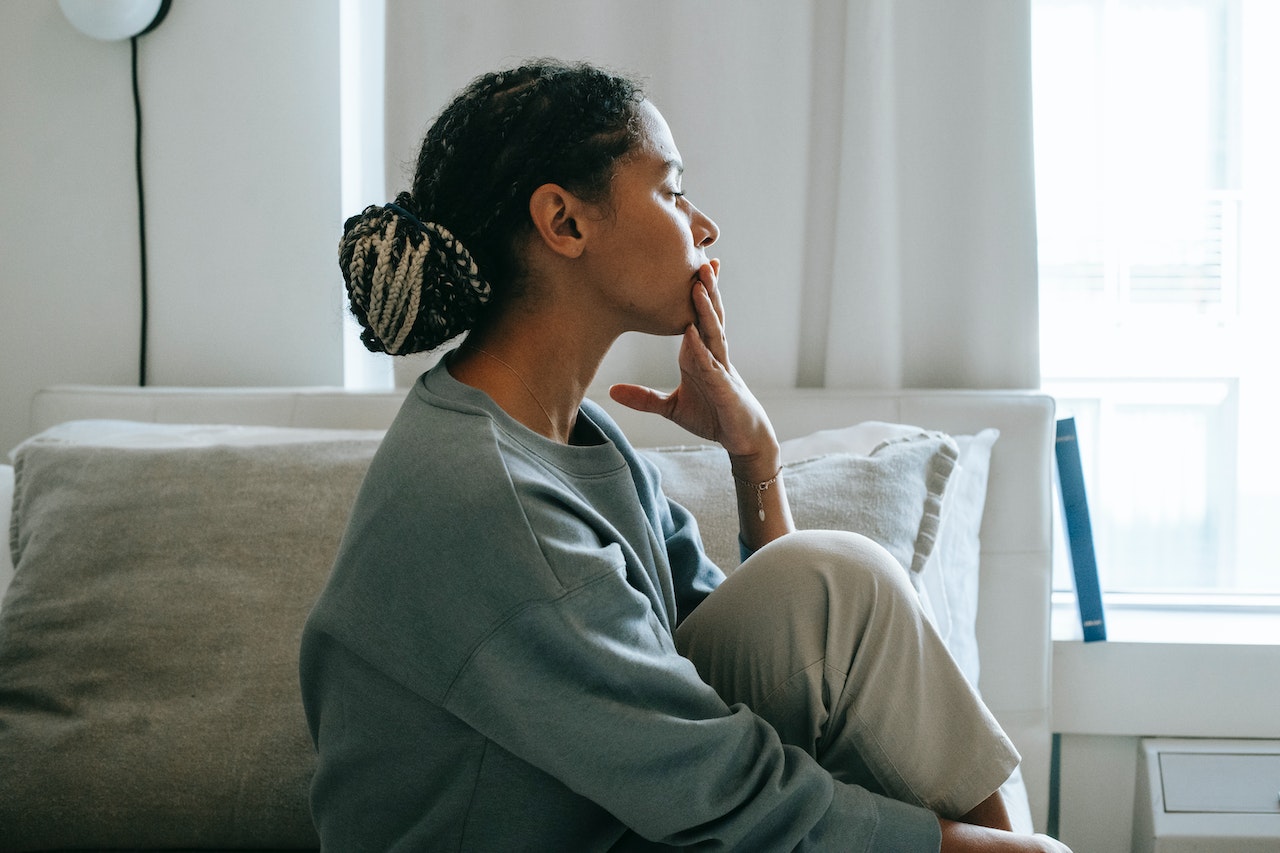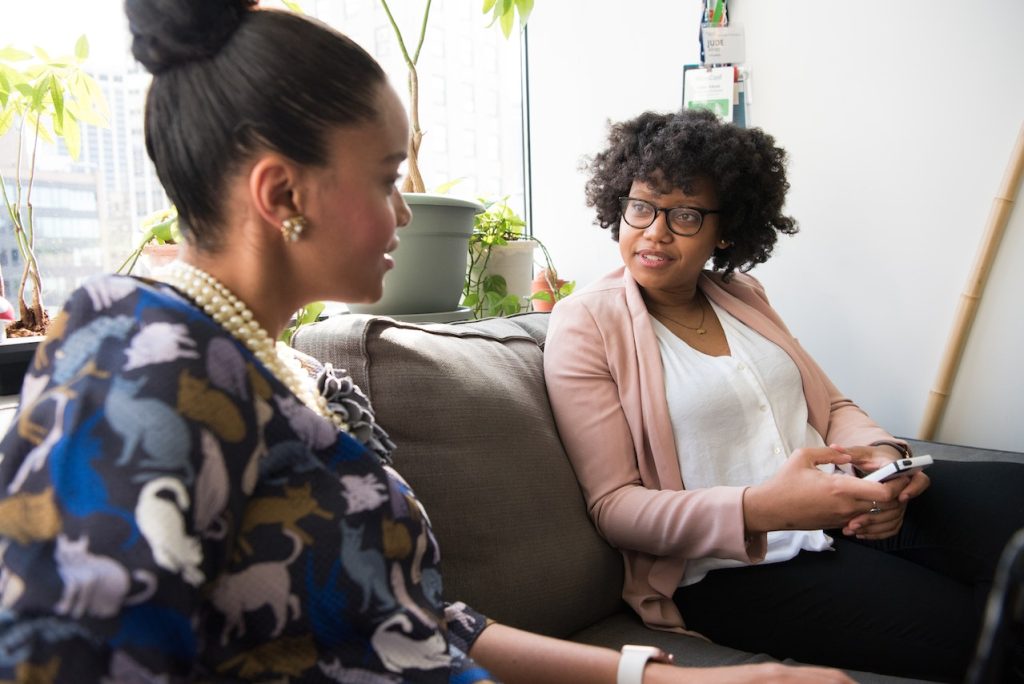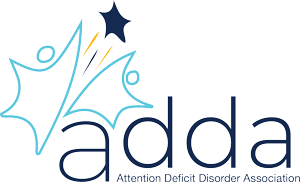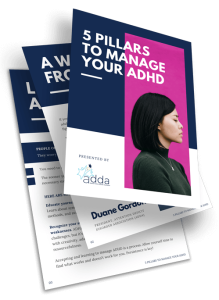
ADHD in Women: Signs, Symptoms, and Treatment
ADHD is underdiagnosed in women more than in other gender identities or children.
Gender biases, as well as cultural expectations of girls and women, play a big part in the lower rate of diagnoses. For example, symptoms of inattentiveness are dismissed as daydreaming, or interrupting others can be labeled chattiness.
As a result, women struggling with undiagnosed ADHD often have their symptoms misattributed to other factors.
Three of the main symptoms women with ADHD struggle with are:
- Inattention
- Hyperactivity
- Impulsivity
Despite these challenges, it is entirely possible for women to thrive with ADHD. Getting the necessary treatment and support further tilts the odds in their favor.
In this article, we’ll explore the signs, symptoms, and treatment for ADHD in women.
If you’d like to know more, read our statement on over- and under-diagnosis of ADHD.
Originally published on September 20th, 2022, this article was updated and republished on November 28th, 2024.
What Is it Like Being a Woman with ADHD?
Everyone walks a different journey with ADHD.
But at the same time, the challenges you face can look very similar to many other women living with the disorder.
For many women ADHDers, the pressure to meet different societal expectations is overwhelming.
Many of them have to juggle multiple areas of life, including family, parenting, relationships, work, and household chores. They might even be pressured to act, dress, or look a certain way.
With symptoms of ADHD, these expectations can be harder to live up to.
On top of that, women are generally better at masking their symptoms. As a result, it may be trickier for them to get a proper diagnosis and access the treatment they need.
Common Signs of ADHD in Adult Women
ADHD can significantly impact various areas of your life. Recognizing the signs of adult ADHD is a positive first step to getting the help and support women need.
Performance at Work and School
ADHD can make completing tasks more challenging.[1]
You may notice the following:
- Forgetting appointments and always running late for meetings.
- Constantly behind on deadlines (or don’t remember them).
- Daydreaming.
- Don’t get along well with colleagues or classmates.
- Messy and disorganized workstation.
- Unable to work in a noisy or busy environment.

Impact on Relationships
Maintaining healthy relationships with your partner, children, family, and friends often feels like more than you can handle due to ADHD.[2]
Here’s how ADHD may impact your relationships:
- Zoning out during conversations, causing the other party to feel ignored.
- Can’t remember important dates (like birthdays and anniversaries).
- Unintentionally blurting out statements that hurt the other party.
- Forgetting to do things you promised or agreed to do.
- Difficulty controlling your emotions and often losing your temper.
Seeking help and support often leads to more fulfilling marriages, happier relationships, and more meaningful connections.
Challenging Social Interactions
Despite your best efforts, ADHD can make it difficult for women with ADHD to make new friends or interact naturally with others.
Social challenges you may face:
- Going on a tangent when speaking.
- Trouble focusing on the conversation unless the topic really interests you.
- Lower self-esteem, making it harder to talk to new people.
- Dislike putting yourself “out there” to make new friends.
- Can’t seem to pick up social cues or read body language.
Emotional Difficulties
You may experience emotions more intensely with ADHD. Sometimes, you may even have trouble hitting the brakes on your feelings, leading to mood swings.
Over time, loneliness, negative experiences, and failures can leave you with poor self-esteem or self-confidence. On top of that, you’re more likely to experience anxiety, depression, and mood-related issues.
You’re also more prone to sleep problems, depression, and eating disorders, making self-care a top priority.[3]

Neglecting Physical Health
Sometimes, ADHD can impact your physical health in the following ways:
- You may neglect exercise.
- Your diet lacks the right balance of nutrients.[4]
- You forget to take your medications or can’t remember how to take them correctly.
- You miss health checkups and doctor appointments.
Derailed Goals and Daily Challenges
With ADHD, each day feels like a race to avoid disasters and minimize mistakes. This keeps you from making progress in achieving your goals.
Here’s how ADHD may get in the way of your daily activities:
Financial issues
- Impulse buying
- Missing bill payments
- High, outstanding credit card balances
- Struggling to set and stick to a budget
Difficulty with daily chores and tasks
- Unwashed dishes and laundry pile up
- Fridge or cabinets have spoiled food
Clutter in your home or workplace
- Dislike having people over due to mess
- Waste time looking for everyday items or tools
- Disorganized everyday items, i.e., makeup in the kitchen, dishes in the bathroom, or shoes on the counter
Difficulty making decisions
- Take longer than necessary to choose clothes, grocery items, meals, and household products
- Make decisions too late
ADHD can cause everyday tasks to feel overwhelming.
Making small and consistent changes is the key to managing your daily tasks with more confidence and ease.
ADHD Symptoms in Women

People with ADHD can be grouped into one of three main categories. [3]
Inattentive Type Symptoms:
- Forgetfulness
- Trouble concentrating
- Short attention span
- Daydreaming
- Being disorganized
- Flight of thoughts
- Internal restlessness
- Poor time management or planning
Inattentive ADHD in women is more common.
Hyperactive-Impulsive Type Symptoms:
- Impatience
- Hyper-talkativeness
- Having too much energy
- Excessive physical movement
- Speaking whatever comes to mind
- Acting without thinking
- Having little sense of danger
Combination-Type Symptoms:
- A mixture of both inattentive and hyperactive-impulsive symptoms
While there are many similarities, there are differences between ADHD symptoms in men and women.
Here’s a comparison of how ADHD generally impacts men and women. [1], [3]
|
ADHD in Women |
ADHD in Men |
|
Symptoms more obvious when reaching puberty |
Symptoms can be quickly detected in childhood |
|
Symptoms of inattention |
Hyperactive-impulsive symptoms |
|
Anxiety, low-self esteem, depression, and loneliness are more common |
More disruptive, hyperactive, and aggressive behaviors |
ADHD symptoms in women often go undiagnosed for various reasons.
- Parents, teachers, and doctors can miss them—because young girls with ADHD don’t usually have loud, disruptive behaviors.[3]
- Many women with ADHD are labeled “chatterboxes,” “clutter-headed,” or “just hormonal.”
- Symptoms are viewed as character traits or emotional issues rather than signs of ADHD.[3]
Despite these challenges, you can learn how to get diagnosed with ADHD and advocate for yourself.
ADHD in Older Women
Symptoms of ADHD in older women typically involve the same group of symptoms you would expect in other ADHDers. Examples include poor focus, impulsivity, restlessness, and poor memory.[5]
However, women undergo hormonal changes during the menopausal period. The changes in female hormones, namely progesterone and estrogen, may make symptoms of ADHD more severe in older women.[5]
The lower estrogen levels affect the release of a chemical messenger in the brain called dopamine. Low dopamine is linked to ADHD symptoms. As a result, older women with ADHD may have even greater trouble with focus and concentration.[5]
Some research also suggests that menopausal women who have ADHD are more likely to experience feelings of depression and poorer mood.[5]
Despite this, every woman’s experience with ADHD looks different. Some women going through menopause may notice little changes to their symptoms. Meanwhile, others might notice that it contributes to much poorer concentration and motivation.
High-Functioning ADHD Symptoms in Females
Some women have high-functioning ADHD, where their symptoms don’t significantly affect their daily activities and performance.
These women still experience some of the typical symptoms of this disorder, including poor focus, lack of attention to detail, restlessness, and poor organization.
As a result, they may miss deadlines, forget appointments, or interrupt others in conversations.
However, these symptoms may be harder to spot due to various reasons.
Firstly, women are generally better at building coping mechanisms to mask their ADHD. They change their behavior to compensate for their symptoms. Many women do this to appear “normal” and meet societal norms and standards.
ADHD masking may include healthy coping mechanisms, such as having a daily schedule or setting phone reminders for important events.
Others may be unsustainable and exhausting in the long run. For example, they may work longer hours or start getting ready for events much earlier than needed.
High-functioning ADHD also describes cases where the person has mild or severe symptoms that only affect specific areas of life and not others.
Because of these characteristics of high-functioning ADHD, it’s generally harder to identify and diagnose.
As you gain a deeper understanding of the different ways ADHD may appear, you can better recognize its symptoms.
How to Diagnose ADHD in Women
There’s no single test to diagnose ADHD in women. Instead, a combination of diagnosis methods is used.
The best way to get a proper diagnosis is to get assessed by a healthcare professional who has experience in adult ADHD. That’s because ADHD in children can look very different from that in adult women.
Your healthcare professional will assess your condition by asking a series of questions to understand your symptoms and challenges better. They may also ask you to fill out a questionnaire based on behavioral rating scales for adult ADHDers.[6]
Additionally, your doctor might request to speak to someone who knew you well when you were a child, such as a parent or school teacher. Since ADHD is a childhood-onset condition, it’s important to find out whether or not it affected you when you were younger.
A proper diagnosis paves the way for you to receive the help you need to overcome your daily challenges and achieve your goals.
Treatment for ADHD in Women

ADHD is real — it’s not all just in your head. And like any other condition, it can be managed with the right treatment and support.
A mix of both medication and therapy is the most effective treatment for ADHD.
Cognitive behavior therapy (CBT), combined with mindfulness-based practices, is an effective therapeutic method.
If you’d like to try therapy, make sure to find a therapist familiar with ADHD so that being late, interruptions, or trouble following through on tasks don’t get in the way.
Additional ways you can deal with ADHD:
Stay Active
- Exercise can improve symptoms of ADHD, especially those related to attention, mood, and memory.[7]
- You can use the habit-stacking technique to incorporate more movement and exercise into your daily life. An example is doing squats or jumping jacks while waiting for your laundry.
Pick a physical activity you enjoy and set realistic goals for how long each session lasts.
Eat a Balanced Diet
- Planning mealtimes – regular grocery trips and preparing meals in advance can help you enjoy more nutritious meals.
- Routine – eat on a schedule to avoid snacking or compulsive eating.
- Avoid too much caffeine and sugary foods, which may lead to a crash later on.
- Meal-prepping is another useful hack for living healthier. Preparing healthy meals a few days to a week in advance helps save time and energy and encourages you to adopt a balanced diet.
Join a Support Group
- A women’s support group allows you to meet and talk to other people who live with ADHD.
- You can ask your local hospitals or clinics for information on support groups in your area or surf the web to look for online ADHD support groups.
Find an ADHD Coach
- An ADHD coach guides you in building personalized strategies and structures that move you closer to your goals.
- You can get referrals from local medical facilities or look online for directories of ADHD coaches.
Try to find a coach who has worked with female clients.
Try Psychological Counseling
- Cognitive behavioral therapy (CBT) is a type of psychological treatment. It helps you change your thinking patterns and habits, giving you more control over your life.
- Marriage counseling and family therapy may also support women in fostering healthier relationships.

ADHD Medications
Medications help to regulate your brain activity and control symptoms. But these must be prescribed and taken under the supervision of a trained professional—preferably a psychiatrist.
Stimulant medications are usually the first choice of treatment for ADHD in adults.
If stimulants are not effective or suitable, your healthcare professional may prescribe non-stimulant medications.
Antidepressants may also be recommended if you’re experiencing mood-related conditions like anxiety or depression.
Currently, new research is geared toward understanding ADHD in women.
Women can look forward to advances in treatment that work better for them as individuals.
Adult Women with ADHD: You Don’t Have to Struggle Alone
If you think you may be showing signs of ADHD, it’s best to reach out to a trusted healthcare professional to examine and diagnose your condition.
Check out ADDA’s online resources, where you can connect with people who have ADHD, find women support groups and coaches, and learn more about ADHD.
ADDA’s Adult ADHD test is also a good starting point to screen yourself and detect if you may have ADHD.
Recognizing that you may have ADHD is an important step to getting a proper diagnosis and treatment.
It’s never too late to take that first step!
Navigating Adult ADHD with the Right Resources
Apart from reaching out to healthcare professionals and ADHD coaches, you can learn more about life with ADHD through online resources.
ADDA+ is an online resource hub packed with courses, webinars, resources, and guides created by experts. Here, you’ll gain access to practical tips and advice on reducing the impact of ADHD on your day-to-day.
It’s also a safe space to connect with other women on the same journey. ADDA+ is a community where you can support each other and exchange tried-and-true tips for living with ADHD.
Frequently Asked Questions
What does undiagnosed ADHD look like in women?
Women with undiagnosed ADHD experience the typical symptoms of ADHD, like lack of concentration, poor memory, carelessness, impulsivity, and restlessness. However, because their ADHD is undiagnosed, these symptoms may affect their day-to-day in more significant ways. They may work twice as hard as their peers to achieve the same goals, struggle with self-esteem or confidence, or experience conflicts in their relationships and friendships.
What are the symptoms of ADHD in women who are quiet?
Women with ADHD who also have a quiet personality might not show as many symptoms of hyperactivity or impulsivity. They may experience the more subtle internal symptoms of ADHD, like daydreaming, lack of focus, forgetfulness, and low motivation.
What does high-functioning ADHD look like in women?
Women with high-functioning ADHD experience symptoms of ADHD but have developed coping mechanisms, like having daily routines or calendar reminders, to compensate for them. On the surface, they might seem very organized and successful. However, many people don’t see the extra time and effort put in behind the scenes to make up for poor focus, impulsivity, or forgetfulness.
References
[1] Young, S., Adamo, N., Ásgeirsdóttir, B. B., Branney, P., Beckett, M., Colley, W., Cubbin, S., Deeley, Q., Farrag, E., Gudjonsson, G., Hill, P., Hollingdale, J., Kilic, O., Lloyd, T., Mason, P., Paliokosta, E., Perecherla, S., Sedgwick, J., Skirrow, C., Tierney, K., … Woodhouse, E. (2020). Females with ADHD: An expert consensus statement taking a lifespan approach providing guidance for the identification and treatment of attention-deficit/ hyperactivity disorder in girls and women. BMC Psychiatry, 20(1), 404. https://doi.org/10.1186/s12888-020-02707-9
[2] Ginapp, C. M., Greenberg, N. R., Macdonald-Gagnon, G., Angarita, G. A., Bold, K. W., & Potenza, M. N. (2023). The experiences of adults with ADHD in interpersonal relationships and online communities: A qualitative study. SSM. Qualitative research in health, 3, 100223. https://doi.org/10.1016/j.ssmqr.2023.100223
[3] Attoe, D. E., & Climie, E. A. (2023). Miss. Diagnosis: A Systematic Review of ADHD in Adult Women. Journal of Attention Disorders, 27(7), 645–657. https://doi.org/10.1177/10870547231161533
[4] Li, L., Taylor, M. J., Bälter, K., Kuja-Halkola, R., Chen, Q., Hegvik, T. A., Tate, A. E., Chang, Z., Arias-Vásquez, A., Hartman, C. A., & Larsson, H. (2020). Attention-deficit/hyperactivity disorder symptoms and dietary habits in adulthood: A large population-based twin study in Sweden. American journal of medical genetics. Part B, Neuropsychiatric genetics: the official publication of the International Society of Psychiatric Genetics, 183(8), 475–485. https://doi.org/10.1002/ajmg.b.32825
[5] Antoniou, E., Rigas, N., Orovou, E., Papatrechas, A., & Sarella, A. (2021). ADHD Symptoms in Females of Childhood, Adolescent, Reproductive and Menopause Period. Materia socio-medica, 33(2), 114–118. https://doi.org/10.5455/msm.2021.33.114-118
[6] Prakash, J., Chatterjee, K., Guha, S., Srivastava, K., & Chauhan, V. S. (2021). Adult attention-deficit Hyperactivity disorder: From clinical reality toward conceptual clarity. Industrial Psychiatry Journal, 30(1), 23–28. https://doi.org/10.4103/ipj.ipj_7_21
[7] Xie, Y., Gao, X., Song, Y., Zhu, X., Chen, M., Yang, L., & Ren, Y. (2021). Effectiveness of Physical Activity Intervention on ADHD Symptoms: A Systematic Review and Meta-Analysis. Frontiers in psychiatry, 12, 706625. https://doi.org/10.3389/fpsyt.2021.706625






15 Comments
Hi everyone I was diagnosed 3 to 5yrs ago. My son called me ADHD when I was in the yard cause I was all over the place and had a hard time finishing 1 area.I finally got diagnosed and put on Adderall which helps alot. I’m 65 and use to have a spotless house but now having a hard time. I need an accountability person but don’t know where to find one. I have no support system and feel like I’m a total mess
I’ve just come across this article, I too was only diagnosed last year. If it wasn’t for my partner asking me if I had ADHD when we were first dating I still wouldn’t know that I am to this day. I have had no inkling that I could be ADHD at all ever in my life, I just thought that I was weird. I am now 45 and feel like so many things that happened to me as I grew up would not have happened if I had been diagnosed a lot sooner. I’m fully aware that I cannot change the past but find it hard to deal with as I am stuck in the past, feeling angry because of what I should or shouldn’t have done and also feeling angry that I never trust my gut instinct or that nothing was done to help me when I was a child. The funny thing is, I’m hearing all of the time of others around my age or older being diagnosed…!!! I’m tired of fitting in with a world that says it’s neurotypical when it feels to me like it may actually be more neurodivergent!!! I just want peace and balance and in order to achieve that I have to work so hard!! Sorry for the rant!!
This disorder has affected my personality and moods. Making and keeping friends or acquaintances is nearly impossible. Diagnosed in 2021 at age 59 was a relief at first; however, many people who have been in my life, either work, play or family, were told by myself that I am bipolar and have borderline personality disorder. I am so glad that I did not stick with any one psychiatrist for a lengthy duration. Being misdiagnosed with bipolar disorder at the age of 18 has done a great injustice to my life. I’ve had almost debilitating depression for decades, generalized anxiety disorder, OCD, chronic disorganization and 98% of the signs and symptoms of ADHD, as described in the publications on this website. I believe I was on the side of high-functioning because I was able to have a career in medical transcription for about 22 years. However, I have always had a problem with restlessness, I am fidgety almost constantly when I’m not typing or washing dishes, vacuuming, etc. I get more exercise looking for things I misplaced or just cannot find. I would get up and down from my seat more often than anyone else in the office. I pull my hair and pick my skin. Recently, about five months ago, psychiatrist asked me why I was on a subtherapeutic dose of Zoloft. I told him the last office, a CRNP, kept me on 50 milligrams!! I’m on 150 mg a day now and doing much better. I only take 10 mg of Adderall because I have high blood pressure. I also take breaks from the 10 mg a day, skipping it. Doctor knows how I take it. I’m divorced for 2-1/2 years now and live alone, so I’m not accountable to anyone and I am miserable because I keep a messy house. I pamper myself a lot so-to-speak with a cup of tea or lay down to rest or watch too much TV. But I hate being alone because I’ve always been high-spirited, probably because of the ADHD. Sorry about the lengthy comment. Take Care everyone.
I read your story. it is exactly like mine. I have always thought I was different than others, especially later in my life. I don’t feel disappointed or depressed about this, rather, the realization that I have one of the illnesses under the umbrella of ADHD I am not on any medication but I do feel as though I would benefit from trying it?
Good luck with your journey Regina.
Thank you for all this information, I was Diagnosis in 5th grade, but that was it. At 73 I continue to struggle because they said there was nothing they could do. My parents were told to just work with me, what ever that means.
I am 48, diagnosed only 12 months ago after suffering with a full burnout.
I’ve since undergone cognitive analytical therapy which was where I got my diagnosis.
For 47 years I felt trapped in myself, being told I was disorganised & emotional. I have been compared to ‘why can’t you be like her’ or ‘why are you not like that’ the constant putting me down & the negative comments. Even my Mum is reluctant to understand my RSD as she states I’m just blaming her somehow. I’m not! I just want my immediate family to understand this is my condition, so with a bit of understanding and insight as to how my symptoms manifest, it will make relationships better.
We’ve all spent our lives having to fit into what the rest of the world perceives as ‘normal’ maybe it’s about time they came into our world for a millisecond & try to understand we’re not just moody, crazy, immotive, withdrawn, or difficult. We just have a condition that is very much misunderstood!
I’m 71 yrs old and have all the symptoms listed. However, I’ve never been formally diagnosed as ADHD. I’d like to know more about it.
I didn’t find the short test particularly helpful as I have well developed coping strategies which probably hide some of my symptoms – so I’m not so extreme in some of my answers because I know I’ve worked really hard to present as ‘normal’!
Hello everyone I’m a 48 yr. old and well when I was in second grade in the eighties I was diagnosed with having a learning g disability and having a hard time with compression. But as I had gotten old new that there was something else more than just that. I have suffered from everything that I had read in this article. I had told my physician that I have been having trouble with focusing and staying on task with thing’s. I even had nurses that I had worked with tell me that I was ADHD. But no one would listen to me. Everyday life was getting harder and harder and my children as well. So finally during covid someone finally listened to me and I was diagnosed. It took until I was 44-45 to be diagnosed with having ADHD. We need more and more articles like this one. Thank you for all you do and are doing for all of us women.
I’m 37 years old and got diagnosed recently. I’m so glad that there is more and more recognition of the difference in symptoms between males and females. I never in a million years would have guessed I had ADHD 3 years ago, before I started reading and watching content about symptoms in women. Especially actual real life examples of how ADHD manifests, not just the medical definitions. Hugs to everyone, we’re doing our best 🤗
I am 76 and am just learning that I have had ADHD all these years! Fortunately I have mostly been a somewhat overactive Chatty Cathy with a good sense of humor all my life, so my family and friends have been able put up with me more often than not. I feel blessed to have discovered why I have been this way and look forward to finding the correct meds to help me chill a
bit.
I’m 60 and just got diagnosed this year. I agree with all the above comments. I fell like I could have been so much more had I known and had tools to deal with it. So much lost too lack of knowledge. Very sad
I feel the same. I was diagnosed November 2017 at 50 years old. I didn’t start any medication right away because I thought I could handle the symptoms, which inevitably got worse during and after COVID. I’m always late for family functions. I get angry at myself, rushing to find an outfit or boots, etc. when I should already be at the event. I feel guilty and ashamed that I’m constantly disappointing everyone, including myself. I am 56 years old now and trying to find support through therapy, as I’ve realized I can’t do it on my own. I’m still trying to manage my daily routines, get back to exercising daily. in trying to understand and learn about the symptoms, I came across this article, which made me feel less alone. Thank you. 🙂
I’m also 56 years old and only received my official diagnosis today. I can’t believe that we have gone so long without figuring this out. I hate that this wasn’t even a thing for us growing up. We weren’t hyperactive, disruptive, misbehaving little boys growing up so it was never noticed. How sad. How much improved our lives could have been all this time if we would have known.
Thank you for this article- 38years old (a teacher) and just learning about myself -these exact details- it’s overwhelming to read about my issues, all the things I’m self conscious and concerned about, but it is also comforting to know there is knowledge and understanding about my brian. It helps me feel -not alone.